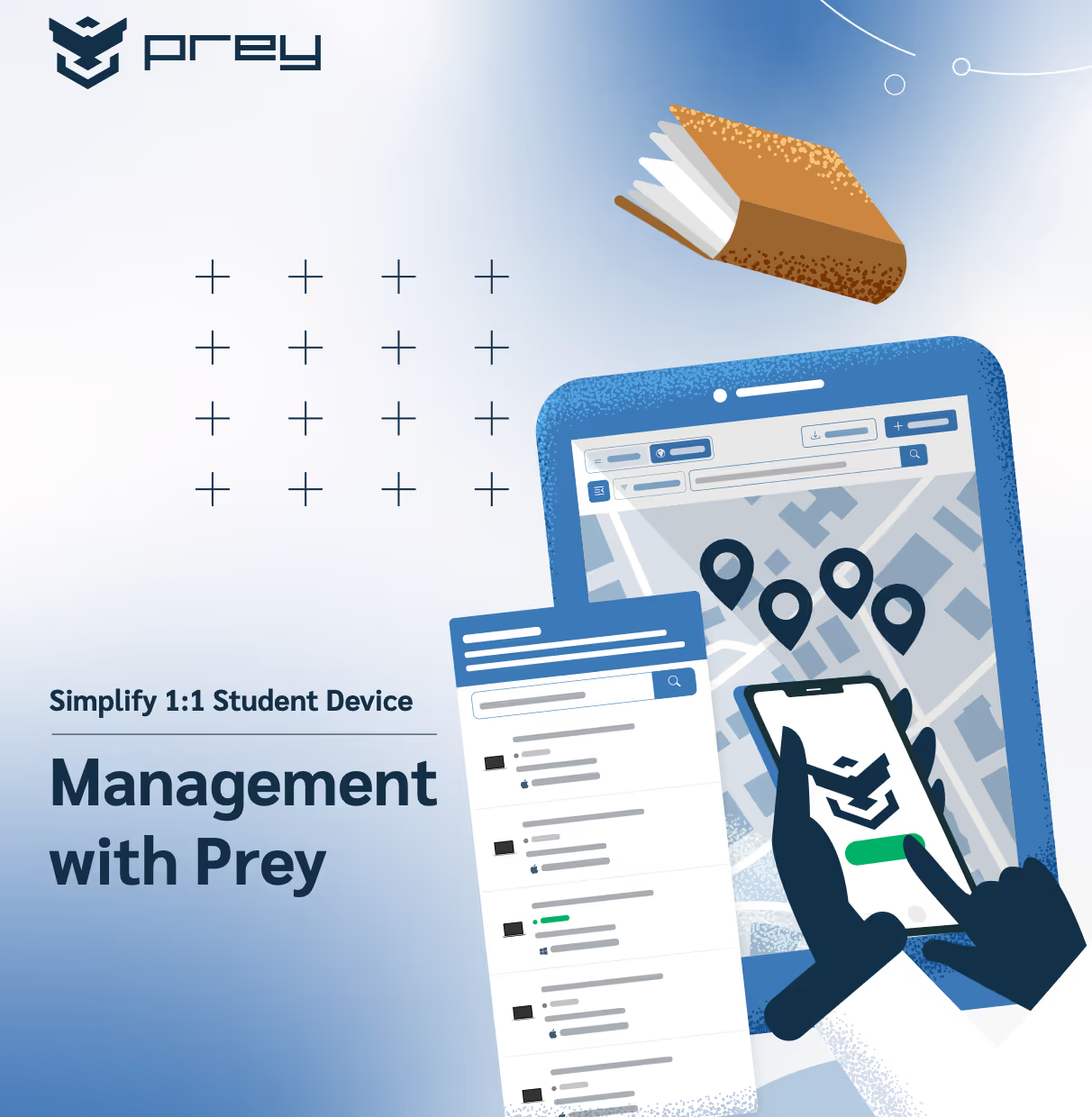The rollout and management of 1:1 device programs present a dual challenge: empowering learning while safeguarding institutional assets and ensuring stringent compliance. The complexity of overseeing hundreds or thousands of remote devices, coupled with budget scrutiny and the constant pressure to demonstrate ROI on IT investments, is a significant burden. Traditional manual tracking methods are often inadequate, leading to inefficiencies and potential security vulnerabilities (say goodbye to spreadsheets!).
This guide provides a strategic overview for transforming your institution's approach to student device management. It details how Prey, a platform designed with these challenges in mind, can help streamline operations, enhance device security, simplify compliance processes, and provide the centralized control necessary to manage a modern, distributed device fleet effectively.
Table of Contents
Chapter 1: The Operational Landscape of 1:1 Device Programs: Inherent Complexities and IT Burdens
An examination of the challenges K-12 schools face as student device programs expand, often straining IT resources that may consist of a single individual responsible for diverse technological domains.
Chapter 2: Key Challenges Confronting IT Departments in 1:1 Device Initiatives
This chapter details common issues such as lost or unreturned devices impacting budgets, time-intensive manual check-in/check-out processes, lack of visibility into device usage and location, and insufficient accountability among users.
Chapter 3: Introducing Prey: A Purpose-Built Solution for Educational Device Management
Learn how Prey is designed to help schools regain control over student device programs by automating manual processes, enhancing visibility, and reducing device loss. Prey supports a wide range of operating systems, including Windows, macOS, ChromeOS, Ubuntu, and Android, from a unified platform.
Chapter 4: Optimizing Loaner Device Workflows through Automation
Explore how Prey automates the device check-in and check-out process, replacing manual logs and spreadsheets. This includes automatic logging of device assignments, support for bulk assignments via CSV, accountability through location and activity tracking in compliance with FERPA, and automated reminders for overdue devices.
Chapter 5: Real-Time Device Tracking and Location Services for Enhanced Asset Visibility
Delve into Prey's robust tracking capabilities, enabling IT teams to monitor device movements and respond effectively. Features include automated location tracking using GPS, Wi-Fi triangulation, and Geo-IP, geofencing alerts for unauthorized device movement, and historical movement reports for pattern identification and recovery.
Chapter 6: Strategies for Preventing Device Loss and Unauthorized Access
Understand Prey's proactive protection tools designed to secure devices and prevent sensitive data exposure. This includes remote lock and alarm activation, automated missing device protocols with location reports and screen alerts, and remote data wipe capabilities for sensitive situations or device repurposing.
Chapter 7: Reducing IT Workload and Simplifying Device Fleet Management
Discover how Prey's centralized platform alleviates IT workloads by consolidating device management into a single, intuitive dashboard. This provides complete visibility into device status and location, automates compliance and inventory reports for audit readiness, and eliminates manual tracking through real-time data synchronization.
Chapter 8: Achieving Comprehensive Control Over Your 1:1 Device Program
A summary of how Prey empowers schools to overcome the challenges of device loss and cumbersome tracking systems through an automated platform, real-time tracking, and robust security features, ensuring smoother and more secure management. This leads to better device accountability and frees administrators from manual tracking burdens.
Conclusion: Transitioning to Proactive and Secure Device Management
Guidance on how your institution can partner with Prey to enhance the safety, security, and accountability of your 1:1 device program.


